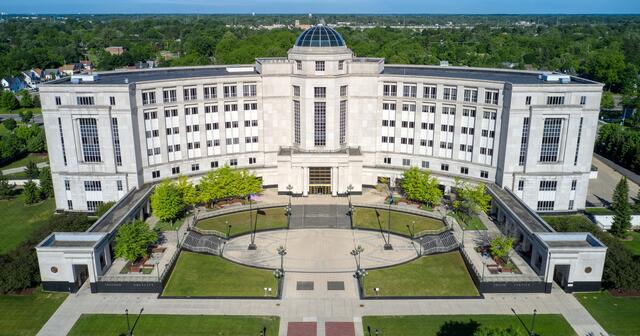
 By Holly Wetzel
By Holly Wetzel
MIDLAND, Mich. — The Michigan Court of Appeals’ decision in the income tax case is based on a speculative economic hypothesis and makes significant errors, the Mackinac Center for Public Policy argues in an appeal submitted to the Michigan Supreme Court today. The Mackinac Center contends that the decision runs counter to decades of economic data that the 2015 Legislature was aware of when it passed legislation that would trigger a permanent income tax cut.
The appeal was filed by the Mackinac Center on behalf of Associated Builders and Contractors of Michigan, National Federation of Independent Business, Inc., Senator Ed McBroom, Representative Dale Zorn and six individual taxpayers from across the state. Earlier this month, the Court of Appeals ruled that the personal income tax cut Michigan residents received last year was intended to be temporary.
The case revolves around a 2015 law that implemented a tax cut trigger. The income tax rate is lowered when the state’s revenue outpaces inflation by a set amount. Excess revenue sources in 2022 triggered a tax cut, so Michigan residents saw their income tax rate fall from 4.25% to 4.05% in 2023. The rate reduction was intended to be permanent, but after seeking an opinion from Attorney General Dana Nessel, State Treasurer Rachael A. Eubanks announced that the rate would go back up to 4.25% in 2024.
The brief rebuts the Court’s unrealistic presumption that a permanent reduction in the income tax rate could in time lower the rate all the way down to 0%. For that to happen, the state’s general fund revenue would have to increase by 230% in a single year. Last year’s general fund revenue was $12.9 billion. Under current conditions, the state’s general fund revenue haul would have to jump to $27.9 billion in one fiscal year. Given that over 60% of general fund revenue comes from the income tax, remaining revenue sources like the sales tax or liquor tax would have to experience explosive growth that would be impossible without a radical restructuring of Michigan’s entire tax system.
The Court also disregarded past legislative practices in its interpretation. The Mackinac Center appeal argues that the term “current” has to have a purpose within the statute. The Court of Appeals theorized that “current” could be defined by future legislative action. That is a new approach to interpreting the law.
In a case impacting five million people with over $700 million a year at stake, the Mackinac Center contends that this approach will wreak havoc in future cases and was inappropriate. Without a correction, this case will have long-lasting economic impacts on taxpayers and put future judicial interpretations of different laws at risk as well.
“Lawmakers in 2015 knew exactly what they were doing when they passed the tax cut trigger,” said Patrick J. Wright, vice president for legal affairs at the Mackinac Center. “The Court’s acceptance of a flawed economic hypothesis that runs contrary to decades of economic data prevented it from reaching the correct decision. It is critical that this error be corrected for both taxpayer relief and budgetary concerns, and because it is also potentially harmful for future legal analysis.”
Read the appeal brief here.

The Mackinac Center for Public Policy is a nonprofit research and educational institute that advances the principles of free markets and limited government. Through our research and education programs, we challenge government overreach and advocate for a free-market approach to public policy that frees people to realize their potential and dreams.
Please consider contributing to our work to advance a freer and more prosperous state.

Donate | About | Blog | Pressroom | Publications | Careers | Site Map | Email Signup | Contact